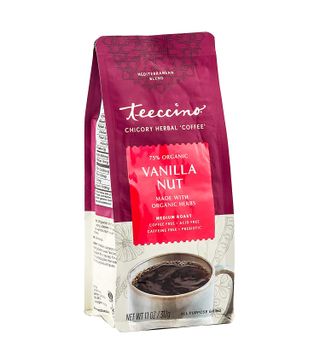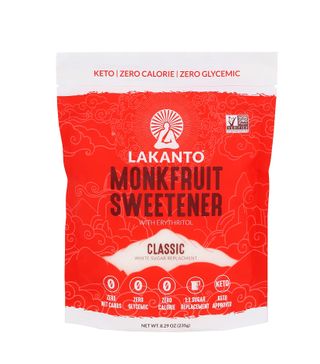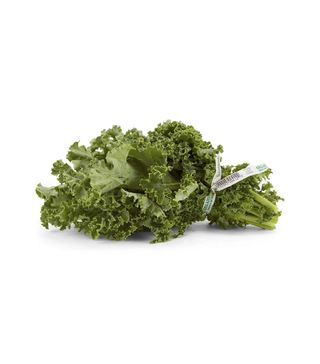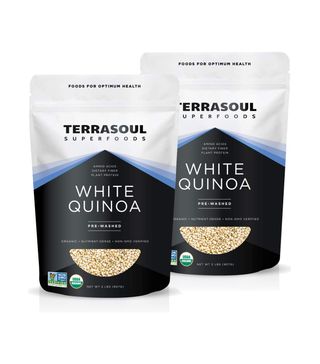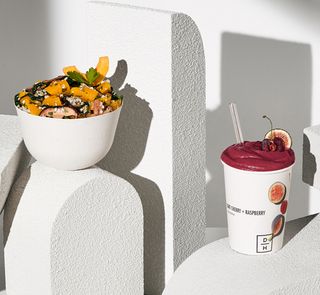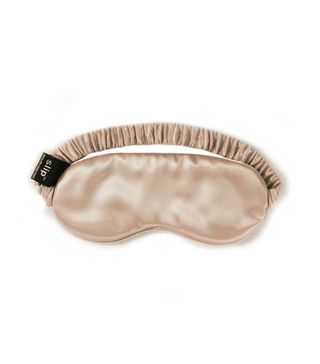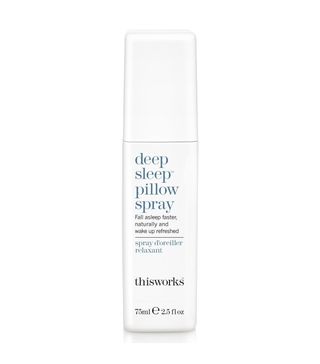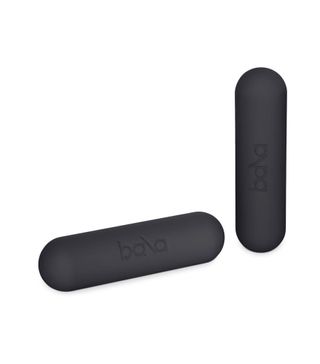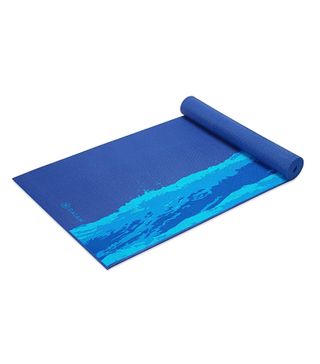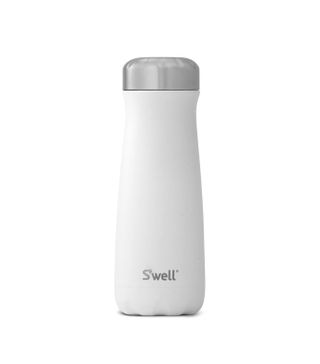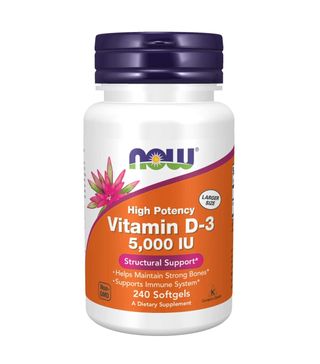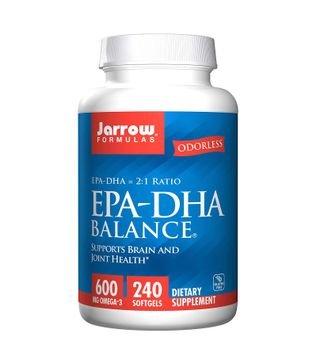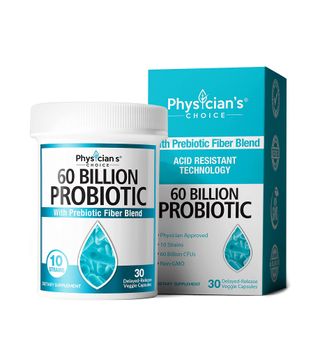9 Simple Ways to Detox Your Liver
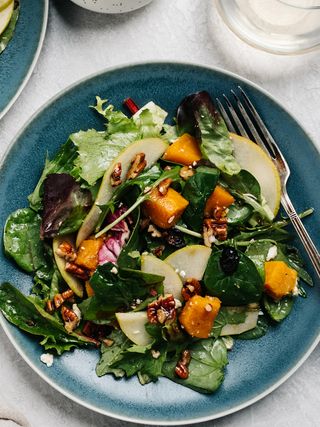
Detoxing or cleansing the liver is such a buzzword in the wellness world. And it sounds pretty good, right? Of course, you want toxins to be removed from your body, decrease inflammation, and possibly lose some weight. But there are a lot of products and programs that boast liver cleansing benefits and it can be hard to figure out what actually works and what doesn't. Add to that, you wouldn't want to take or do anything that can harm your body.
So how can you figure out which way is best to cleanse the liver? I went to the experts. First, it helps to start with a general understanding of what the liver does. "The liver plays many different important roles within the body, including detoxification, energy metabolism, and the creation of certain proteins and hormones," explains Claire Virga, RDN, MS, CDN, a registered dietitian with Rooted Wellness.
But the liver is probably most known for its enzymes that help to neutralize and package toxins so they can be eliminated from the body, adds Deanna Minich, Ph.D., vice president of scientific affairs for Clean Program. "Together with the gut, it can recruit inflammatory molecules if there is an insult or injury. It oversees the packaging of lipids (like LDL and HDL) and the formation of bile (which we need for digestion)," she says. "The liver is also important in metabolism since it oversees the storage of glycogen (energy source) and responds to insulin."
Signs Your Liver Might Need Cleansing

So if the liver is all about getting rid of toxins, does it really need to be cleansed? I mean, if it already detoxifies does it need to detoxify itself? Well, for the most part, it takes care of itself. "In healthy individuals, the liver is perfectly capable of carrying out cleansing and detoxification on its own without special detox diets, supplements, or cleanses," Virga says.
But there are some situations where your liver might need some extra help. "Unfortunately, our environment is becoming increasingly toxic. Furthermore, many people have varying levels of being able to remove these toxins, either from a genetic variation of enzymes and/or from their diet and lifestyle practices," Minich says. "Therefore, the liver is always trying to 'clean house,' but there may need to be times when more support is given, such as in eating a poor diet with highly-processed foods (like sugar, starch, caffeine, and alcohol, as well as eating from plastic containers/wrap), eating a high-fat diet (because the liver has to make enough bile and distribute/package those fats), hormonal changes, bouts of chronic stress, and times when toxin exposure may be greater. We may also start to get digestive issues, low energy, or skin eruptions, indicating that our liver has 'had enough.'"

Having Non-Alcoholic Fatty Liver Disease (NAFLD) puts your liver in trouble. And it's on the rise in the United States, Virga says—it's estimated that about 30% of the population has NAFLD. "Liver disease is often referred to as 'silent' because there are not many overt symptoms, much like hypertension. However, being overweight or obese puts you at a greater risk for Non-Alcoholic Fatty Liver Disease. Excessive weight around the midsection is particularly worrisome for the liver. Excess abdominal fat can cause fat to build up in the liver, which prevents the liver from being able to carry out many of its important functions. Maintaining a healthy weight is one of the best things you can do for your liver."
And excessive alcohol intake can take a toll on the organ over time. Virga says if you are consuming alcohol excessively for a prolonged period of time, your liver is likely in need of some TLC. "In this case, cutting back on your alcohol intake, or even better, avoiding alcohol completely, is the best way to support the health of your liver," she adds.
There's really no set time frame for how long it takes the liver to reset. Tamar Samuels, MS, RDN, NBC-HWC, a registered dietitian, a national board–certified health and wellness coach, and co-founder of Culina Health, says it may take at least 10 days to cleanse the liver—some may need more time to detoxify than others. Virga adds that making sustainable lifestyle changes should be implemented and over time, the changes can help reverse damage to the liver. But it's important to note that prolonged exposure to excessive alcohol might damage the liver permanently and that is something that can't be fixed with a cleanse or detox diet.
With that being said, if you're looking for ways to reset, take a look at some changes you can make below.
Ways to Cleanse the Liver
1. Avoid Alcohol

This is worth repeating since excessive alcohol intake can damage the liver as we learned above.
2. Avoid or Reduce Sugar and Caffeine

Minich recommends cutting back on these two things or avoiding them altogether. Try caffeine alternatives or natural sweeteners if you are looking for replacements.
3. Increase Intake of Whole, Plant-Based Foods

Whole foods are always best. Virga suggests adding more veggies, whole grains, and fruits to your diet. "Eat a low-glycemic, anti-inflammatory, nutrient-dense diet full of vitamins, minerals, and phytonutrients, to give the liver what it needs to do its job well," Minich adds.
Some veggies to prioritize include cruciferous ones (broccoli, cauliflower, kale, collard greens, etc.), which Samuels explains supports the liver because they contain key enzymes that the liver uses to detoxify our blood. And don't forget about fiber-rich foods. "Fiber is necessary for proper digestion and bowel function," Samuels says. "Throughout detoxification, it is important that bowel movements are regular as this is a primary pathway for toxin excretion Aim to include fiber in your diet through fruits, vegetables, avocado, seeds like chia and flax, and whole, unrefined grains like quinoa, oats and whole wheat bread."
4. Lose Weight
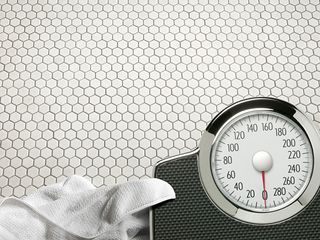
If you are overweight or obese, even losing just 10% of your body weight can help, Virga says.
5. Get Some Sleep

"Sleep deprivation can alter the metabolism of the liver, making it harder to process insulin and produce glucose," Samuels says. "During a liver detox, you may feel more tired than usual as your body lets go of excess toxins, making it even more important to give yourself the sleep you need." Revamp your bedtime routine, like staying away from phones or electronics before bed, sticking to a set wake and sleep time, and setting up a sleep sanctuary in your bedroom.
6. Move Your Body

Staying active can help your body overall. Virga, Samuels, and Minich suggest getting regular exercise or movement. That can be things like taking a daily walk around your neighborhood or trying out a new exercise class.
7. Avoid Highly Processed Foods
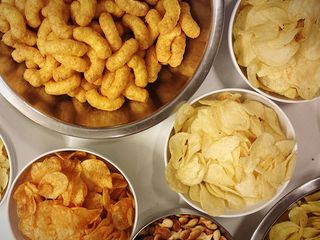
Virga recommends staying away from these—that means things like sugary drinks, frozen foods, packaged snacks, and sweetened breakfast cereals.
8. Reduce Your Exposure to Toxins

"Reduce exposures to toxins like plastics, heavy metals such as mercury (in dental fillings, fish), and even persistent organic pollutants by eating organically grown foods as much as possible," Minich says.
9. Stay Hydrated

"In general, aim to drink at least four to six cups of water per day," Samuels suggests. "Water helps move fiber through the body and flush toxins from the liver and bloodstream. If you want to really up your water game, aim for at least half an ounce of water per pound of body weight."
Can Supplements Help?
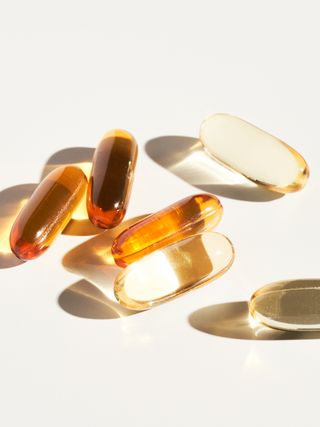
You've probably seen a lot of supplements that promote cleansing benefits. While some can be helpful, it's best to start with the lifestyle changes like overhauling your diet. "It's best to establish a day-to-day healthy foundation of eating whole, unprocessed foods and drinking phytochemically-rich beverages like teas and smoothies," Minich says. "Once the foundation has been laid, I tend to think of supplements as filling the gap of what we may be short on in our daily eating. There may be cases where we need more nutrients due to greater stresses, gene variability, and higher toxin load, that might warrant supplementation. We usually recommend vitamin D (Clean Program's Shine), EPA-DHA (Balance), a good probiotic (Cultivate), and a plant-based shake powder, like Daily Shake."
And you want to take note that any supplement marketed as a "liver cleanse" is not regulated by the FDA, so some of these might not do what it says it does. "A recent study found that herbal and dietary supplements are responsible for 20% of liver toxicity in the United States," Virga explains. "While herbal supplements may sound like a better alternative to prescription medications, these supplements can actually be dangerous and harmful when taken in large quantities."
When Should You See A Doctor?

"If an individual has issues with their hormones (e.g., painful periods, migraines), gut (e.g., bloating, gas), high blood fats, or even at high risk for diabetes and/or cardiovascular disease, it might be a good idea to get one's liver health assessed," Minich says. "A qualified healthcare practitioner can do laboratory tests related to liver function tests (e.g., ALT, AST, GGT) that can provide information on how well the liver is functioning. Blood fats like triglycerides, LDL, and HDL, can also be measured to get a sense of how well the liver is doing its job. There are more specific tests looking at detoxification enzymes and metabolic products of hormones that can be used in cases where needed."
And Virga adds that liver disease is often silent. "It is a good idea to ask your doctor to run a liver function blood test if you have any risk factors associated with Non-Alcoholic Fatty Liver Disease such as obesity, high cholesterol, diabetes or hypertension, or if you do not drink alcohol in moderation," she says.
Next: 7 Effective Wellness Apps I Didn't Immediately Delete Off My Phone
Disclaimer
This article is provided for informational purposes only and is not intended to be used in the place of advice of your physician or other medical professionals. You should always consult with your doctor or healthcare provider first with any health-related questions.
Sarah is lifestyle writer and editor with over 10 years of experience covering health and wellness, interior design, food, beauty, and tech. Born and raised in Los Angeles, she attended New York University and lived in New York for 12 years before returning to L.A. in 2019.
In addition to her work on THE/THIRTY and Who What Wear, she held editor roles at Apartment Therapy, Real Simple, House Beautiful, Elle Decor, and The Bump (sister site of The Knot).
She has a passion for health and wellness, but she especially loves writing about mental health. Her self-care routine consists of five things: a good workout, “me” time on the regular, an intriguing book/podcast/playlist to unwind after a long day, naps, and decorating her home.
